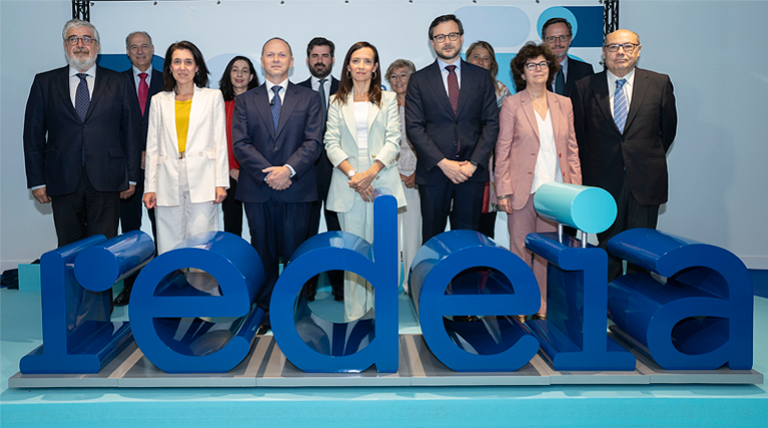We are a global operator of essential infrastructure
We manage the environment respectfully, engaging in continuous dialogue with our stakeholders, involving our suppliers, and maintaining maximum transparency regarding our activities. We use tools such as environmental management systems to achieve the desired environmental approach by meeting our objectives.

The main environmental effects of our activities stem from the existence of plants in the territory. Therefore, we strive to make them compatible with their surroundings throughout their life cycle, ensuring the protection and conservation of the environment in line with the principles established in our environmental policy.
Our commitment to the environment is so comprehensive that it not only covers the activities of all Redeia companies but extends to our suppliers. We want them to adopt responsible practices and apply environmental criteria to their processes.
The most prestigious international environmental indices recognise our environmental strategy and management.

We carry out all our activities following the principles of our Environmental Policy, updated in 2023.
It encompasses our commitment to pollution prevention, the precautionary principle, and concepts like life cycle approach, stakeholder expectations, the way we extend our environmental commitment to the supply chain, and how we proactively comply with environmental regulations.

Thanks to our Environmental Management System, we integrate the principles of the Environmental Policy and environmental guidelines and objectives into our management and decision-making. We aim to:
- Prevent pollution,
- Respect, conserve, and improve the environment
- Comply with legislation, as well as the multiple environmental commitments we voluntarily undertake.
In 2023, the percentage coverage of our Integrated Management System was 90% in terms of revenue

Reducing carbon footprint, protecting, and conserving biodiversity, ensuring the integration and harmonious coexistence of our installations in the territory, as well as extending sustainability to our supply chain—especially regarding the environmental area—are just a few of the short-term environmental goals we have set.
They are part of our Sustainability Plan 2023-25, an ambitious yet realistic roadmap that outlines specific, measurable actions with which we are already minimising our environmental impacts, progressing in our Sustainability Commitment 2030, and complying with our Environmental Policy. The Plan ensures responsible environmental management of the business and addresses our stakeholders' expectations and demands.
Specifically, regarding material environmental issues and commitments related to our Environmental Policy, the Plan includes 7 lines of action, 37 objectives, and 65 actions.
Rather than being an exhaustive compilation of all our environmental activities, the Sustainability Plan 23-25 focuses on the main ones. Indeed, it drives, coexists and supplements other actions derived from continuous improvement processes in Environmental Management Systems, direct interaction with stakeholders, and other specific action plans.
We actively manage four material issues due to their relevance to our stakeholders:
Commitment to Biodiversity + Biodiversity Action Plan (2023-2025)
Commitment to Climate Change + Climate Change Action Plan (2022-2030)
Action Plan for Integration of Facilities into the Environment (2023-2025)
Roadmap for the Circular Economy 2030
In 2022, we increased our spending by 6.4% compared to 2021 on:
- Pollution prevention
- Protection and conservation of biodiversity
- Fight against climate change
- Fire prevention
- Eco-innovation projects
Most of our environmental investment is in the management and operation of electrical infrastructure in Spain.
The amount allocated to environmental issues in Red Eléctrica's investment projects grew by 28.5% in 2022. Its purpose was:
- Environmental documentation of projects such as environmental impact studies, environmental studies, landscape simulations, and archaeological studies, among others
- Processing of the Environmental Impact Statement (EIS)
- Environmental supervision of construction works
- Environmental monitoring programmes


















